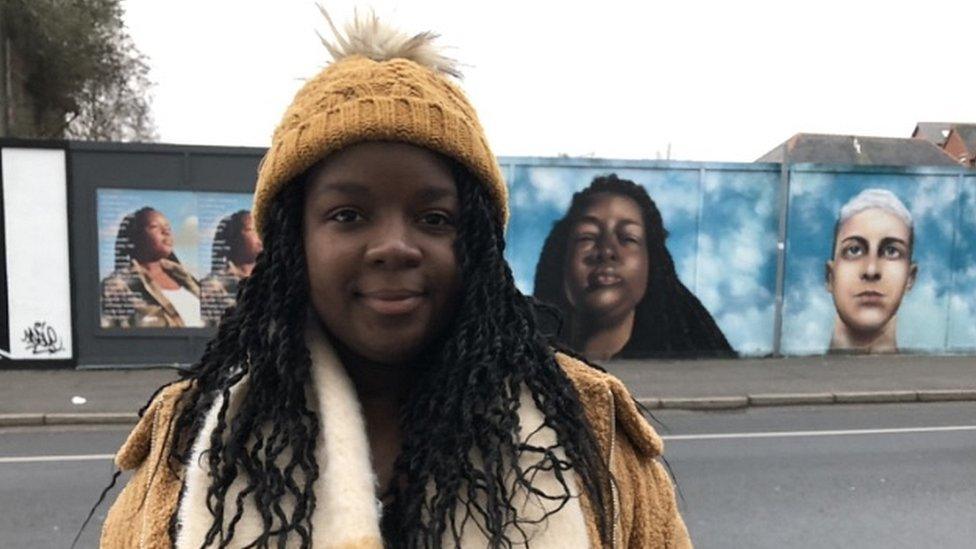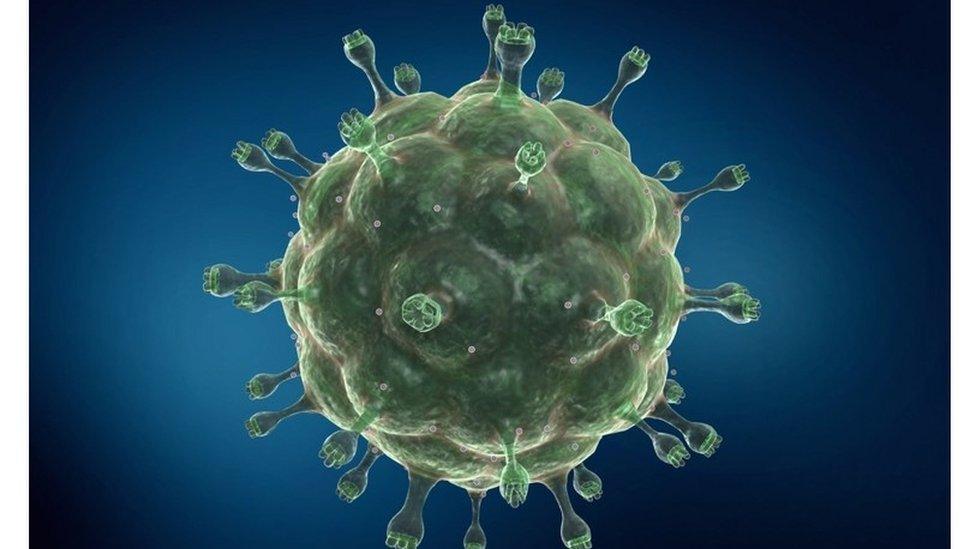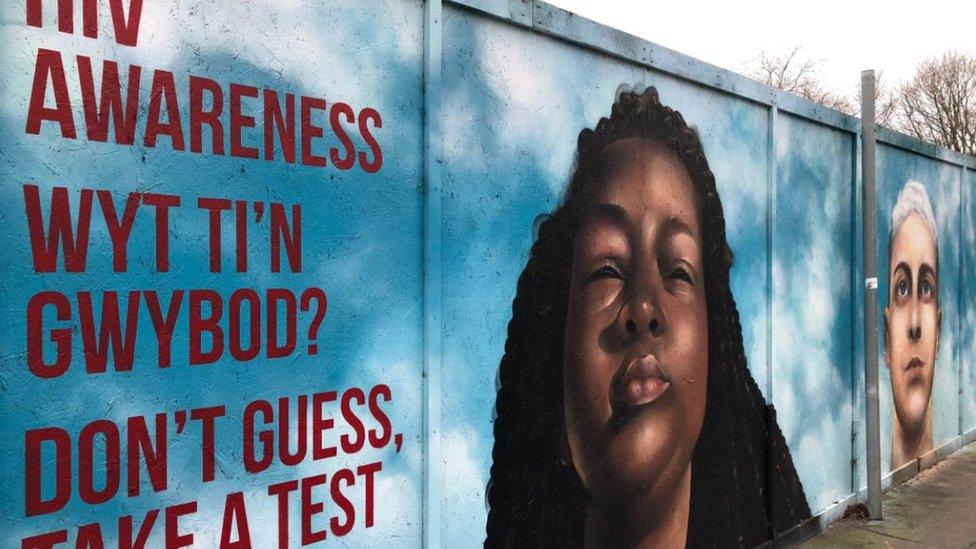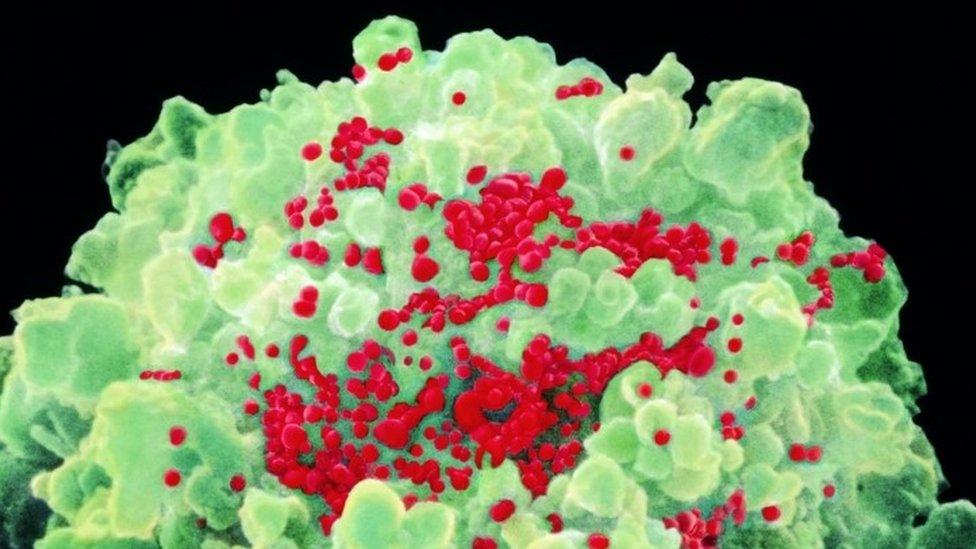HIV: Cardiff project aims to raise awareness of virus
- Published

Mercy says she felt she had to live in two worlds which did not mix
For Mercy Shibemba, growing up with HIV in Cardiff was something she thought would have to be kept a secret.
Part of the difficulty was being unable to access specialised support services for her voice to be heard.
But a new HIV advocacy network, Wales HIV Advocacy Matters (WHAM) now aims to change that by increasing community understanding and improving access to testing and treatment.
The project is set to run for the next two years.
It has been set up by volunteers, including some sexual health and HIV specialists in the Cardiff and Vale health board area, in the hope it will benefit people across Wales.
Medical progress has made HIV a manageable and undetectable virus and Mercy, 23, who was born with HIV, is able to live a "happy and healthy life".
She has travelled the world to talk about her experience of living with HIV and advocates for improvements in testing, treatment and support.
"Growing up in Cardiff and talking about HIV was not two things that went together for me," she said.

Thanks to antiviral drugs, people can live a "healthy and happy life" with HIV
"When I first found out and was grappling with it, it was a massive thing because nobody was talking about it. It felt like these two worlds could not mix and I always second guessing how I was going to live life with this big secret I had to keep.
"Wales hasn't had specialised support services for people living with HIV. If you look across the border in England they have lots of different services people can access. Part of what was difficult growing up here was there wasn't that tailored support until the Children's HIV Association was able to do some work in Wales.
"I think having an advocacy network which could bring some really influential people together across Wales so that there's a cohesive strategy going forward."
Data on the number of people diagnosed with HIV in Wales has not been published since April 2019.
At the time there had been slight increases in positive cases among women and young people. The number of men testing positive had reduced but it's believed men who have sex with other men are still believed to be the most at risk.
Cardiff and Vale health board is a member of the Fast Track Cities programme which is a global initiative to reduce stigma and improve health outcomes for people living with HIV.
A volunteer development worker with the programme, Lisa Power, has worked with others to secure funding for the WHAM advocacy network.
Ms Power said: "One of the problems we have in Wales which is significantly worse here than elsewhere in the UK is a lot of people are diagnosed very late.
"We want to use this service to make sure people are diagnosed early enough to benefit from the excellent treatment that's available now."
"People who want to do something about HIV because maybe it affects them personally, but they don't have anywhere to go in Wales. There are no HIV charities in Wales, there are no activism in the community so what we want to do is set up a network so people can support each other in creating good change.
"Some communities are affected more than others. Gay men are much more affected than most, we have a number of cases in Wales among migrants and amongst women.
"We're about getting people together and to become lobbyists and making sure services in their area are as good as they can be."
In a statement, the Welsh government said: "We are working with stakeholders to develop a HIV Action Plan for Wales which will contain focused, measurable actions to increase HIV prevention, diagnosis, treatment and care and reduce stigma. Improving access to services, education and awareness will form part of the action plan."


THE STORY OF MIWSIG: Eleri Price and Huw Stephens time travel with Welsh language pop
MARGINS TO MAINSTREAM: Michael Sheen introduces new writers revealing their truths

Related topics
- Published16 February 2022

- Published1 December 2021

- Published23 November 2021
